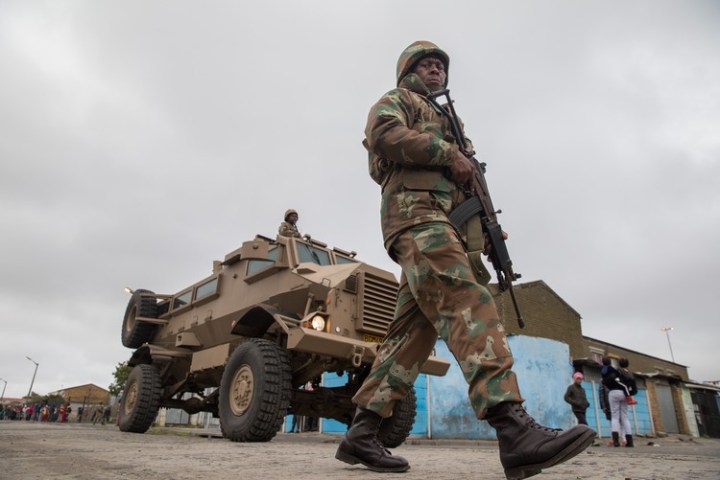Covid-19: Food Parcels
Dodgy meals – it’s not what it looks like, says supplier

The SANDF has opened a case of fraud with the Military Police against a supplier over claims that food rations for troops deployed during the lockdown had expired. The food is safe, said the supplier, claiming the issue had been caused by confusion.
Ready-to-eat meals company Serac says provisions supplied to SANDF members during the lockdown are safe and meet all regulatory guidelines. The company was commenting after videos were shared showing differing “best before” dates on meal packs.
“It’s not a food issue. It’s a perception issue,” said Serac South Africa CEO Stephen Weir on Tuesday.
The SANDF has opened a case of fraud with the Military Police against the supplier of ration packs for its members during the Covid-19 lockdown, it said on Tuesday, without naming the supplier.
The case was opened “after it was discovered that the supplied ration packs had expired. This was revealed when troops discovered that stickers with new expiry dates were placed over the original dates”, the SANDF said in a statement.
Videos have been shared on social media showing unidentified people, suggested to be SANDF members, with Serac MRCs (meals ready to eat) claiming they have expired.
In one video, someone points to the best before dates on the labels of three meal pouches, all dated 31 October 2020. After peeling off the labels, the person points to “BB” stamps that range between 7 December 2019 and 10 February 2020.
“Is this what we mean to this government of ours? Someone please intervene and try to help us because a running stomach is good if you’ve done it on yourself, but intentionally being killed is not the right thing for the soldiers,” says the voice in the video.
SANDF Chief General Solly Shoke said if the allegations are true it would amount to “sabotage of the SANDF’s mandate to protect South Africa”.
Serac’s Weir said the best before dates on a limited number of food products had been updated but those items were safe to eat. He said there was confusion over the difference between best before and expiry dates.
“There were no expired packs,” said Weir.
Expiry dates indicate when food is no longer edible. Best before dates indicate quality rather than safety and outline the time it takes until the characteristics of a product might change.
Serac packages meals, which are produced by the company Interfood, in pouches. Weir said they are sterilised to kill bacteria and have been tested over 36 months to ensure there is no build-up in bacteria or change in flavour.
There was insufficient time to produce a sufficient supply of new meals, which takes six to eight weeks, when President Cyril Ramaphosa authorised the domestic deployment of 2,820 SANDF members to help contain the spread of Covid-19 in March, said Weir.
He said a limited number of meals added to ration packs had been labelled with updated best before dates, which had been determined by Serac’s testing of its products. Serac has been supplying ration packs to the SANDF for over three years.
“Those pouches are approved by the regulator. Each batch is signed off by the regulator called the NRCS,” said Weir, referring to the National Regulator for Compulsory Specifications.
The SANDF was aware of the issue – which had no effect on the safety or quality of the food – when it ordered provisions for the deployment, he added.
“Our foods can last significant periods,” he said, noting how such rations have been shown to “last indefinitely”.
Weir denied Serac was involved in any form of fraud and said the company would participate in and provide documents to the Military Police’s investigation.
He downplayed the issue and said Serac and the SANDF were discussing options to address the perception that some provisions were dangerous.
SANDF spokesperson Colonel Louis Kirstein said he could not name the supplier being investigated and could not comment on an ongoing investigation. DM















 Become an Insider
Become an Insider